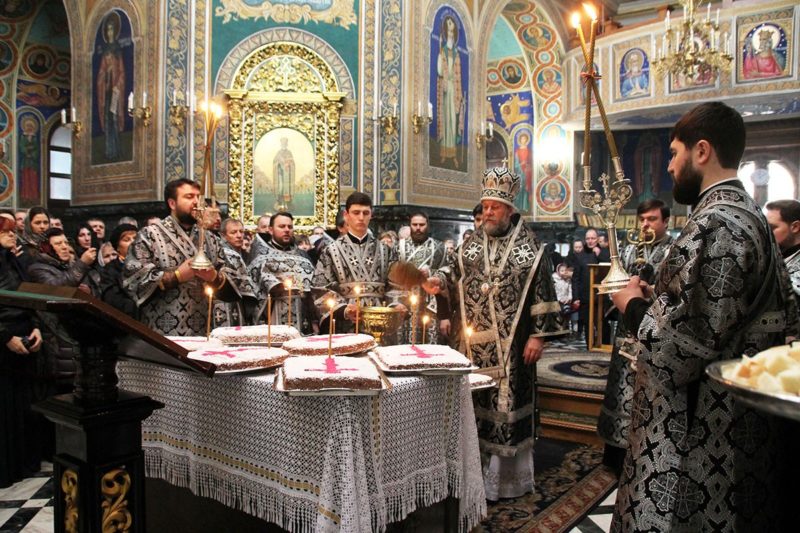On the first Friday of the Great Lent, His Eminence Metropolitan Vladimir celebrated the Liturgy of Pre-sanctified Gifts at the Nativity of the Lord Metropolitan Cathedral in Chisinau.
Very early in the morning, Christians started to gather in the Cathedral to participate in this service, special by its significance and beauty.
The faithful prayed along with the Metropolitan, in much humility and with hope for the God’s blessing of all those kneeling in prayer.
In the solemn atmosphere of the Great Lent, the Divine Liturgy of Pre-sanctified Gifts has outstanding importance, through its songs and prayers of repentance and insight, determining the soul to strive for renewal, making the human being purified and closer to God. The notion of repentance itself implies a change of mind, a transfiguration of mentality with firm decision to abandon old mistakes and fill the soul with light and unity with the Creator. This is the very meaning of this special liturgical act called Liturgy of Pre-sanctified Gifts, when, in fact, the bloodless offering of Christ’s Body is done at the previous Sunday’s Liturgy, being offered to the Christians during a Lenten weekday (usually, on Wednesday or Friday, or at a special Christian holiday during the Great Lent). The significance of this Presanctified Liturgy consists in the longing of partaking, of Communion, or, the thirst for God of intensely pious Christians, who can hardly wait a whole week without Communion with the Flesh and Blood of Christ.
That is why, participation of numerous Christians, specifically, young people and children, in the Pre-sanctified Liturgy, is a reason of outstanding spiritual joy.
After the Liturgy, His Eminence Vladimir blessed the koliva, following an Orthodox tradition specific to the first Friday and Saturday of the Great Lent. Koliva is a ritual food used by Orthodox Christians, especially during fasting. It is made of wheat, whether entire, grinded or ground, boiled with sugar or honey, with nuts, raisins and other sweets, and symbolizes the resurrection, just like a grain of wheat, thrown into fertile soil, dies in order to give birth to other grains. It also symbolizes the flesh of holy martyrs, sweetened with the teaching of Christ, whose death was qualified as the seed of Christianity.
Having received the Archpastor’s blessing, the faithful were advised to remember the life of St. Theodore of Tyre, the spiritual significance of koliva, as well as to experience the Great Lent with profound insight, transfigurating their entire lives.
Synodal Sector of Institutional Communication and Relations with the Mass-Media





